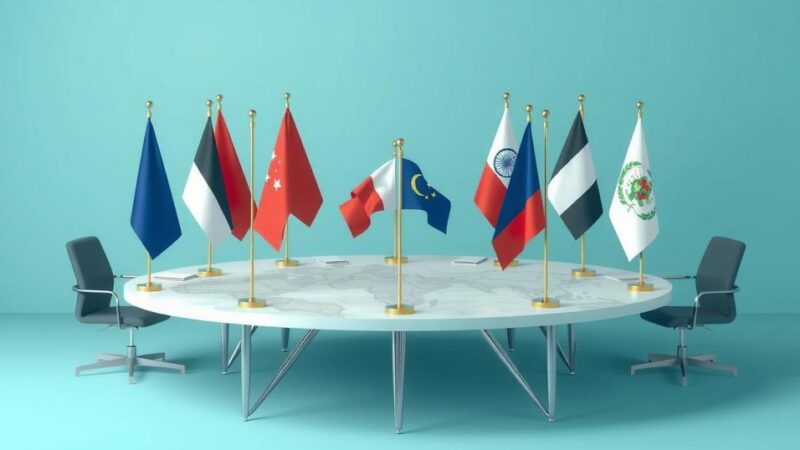Malaysia will grant refuge to 15 Palestinian freedom fighters released during the Gaza ceasefire. This decision underscores Malaysia’s commitment to supporting the Palestinian cause alongside other Muslim-majority nations. The initiative seeks to address humanitarian responsibilities, amidst shifting public sentiments regarding refugee management following recent protests.
Recent developments indicate that Malaysia will welcome fifteen Palestinian freedom fighters, released as part of the Gaza ceasefire agreement. These individuals, held without trial for twenty to thirty years in Israeli prisons, will be granted refuge as part of Malaysia’s commitment to humanitarian efforts in the region, announced Foreign Minister Datuk Seri Mohamad Hasan on March 18, 2025.
The ceasefire agreement is the result of extensive negotiations facilitated by Qatar, Egypt, and the United States. It entails a reciprocal exchange wherein Hamas will release Israeli captives, while Israel will free Palestinian prisoners, thereby fostering an environment for lasting peace.
Malaysia’s initiative reflects a broader solidarity among Muslim-majority nations like Turkiye, Egypt, Pakistan, and Indonesia, showcasing unified support from the Organization of Islamic Cooperation for the Palestinian cause. By accepting 15 former detainees, Malaysia aims to contribute meaningfully to the ongoing efforts for Palestinian liberation, distinguishing its approach as more tempered than that of other countries with larger intakes.
Officials in Malaysia are currently processing the fighters who will be offered refuge, adhering to procedures that mirror protocols previously established for Syrian refugees. The Foreign Minister stressed that this act extends beyond mere shelter; it represents Malaysia’s dedication to fostering peace amidst a protracted conflict and the ongoing humanitarian crisis in Palestine.
The announcement coincides with recent challenges faced by Malaysia in managing its refugee population, with growing public discontent regarding conditions faced by Palestinian refugees brought in under humanitarian initiatives. Some Malaysians have likened these conditions to past issues involving Rohingya refugees, indicating a more complex public sentiment surrounding the refugee crisis that is historically influenced by economic and security concerns.
In conclusion, Malaysia’s decision to accept 15 Palestinian freedom fighters underscores its commitment to humanitarian principles and solidarity with the Palestinian cause. This initiative, which aligns with broader OIC support, reflects Malaysia’s nuanced stance amidst mixed public sentiments regarding refugees. As the nation navigates the complexities of refugee management, the focus remains on contributing to the quest for peace and humanitarian relief in Palestine.
Original Source: www.therakyatpost.com






